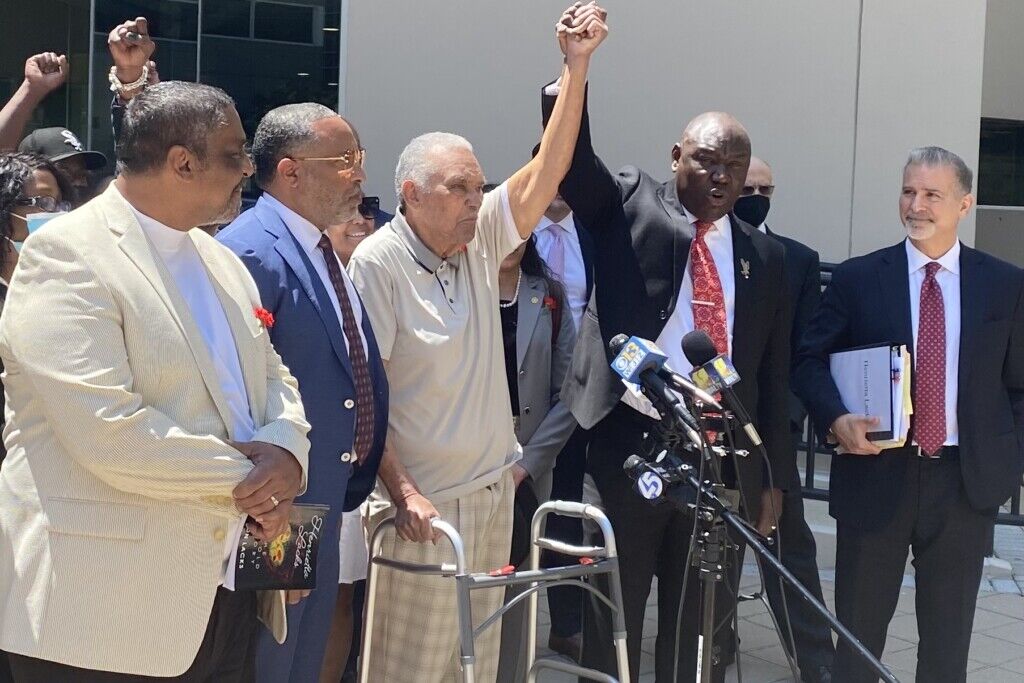
This content was republished with permission from WTOP’s news partners at Maryland Matters. Sign up for Maryland Matters’ free email subscription today.
The fate of the lawsuit filed by the estate of Henrietta Lacks against a biotech company for non-consensual use of her cells hangs in the balance as a judge considers if and how Maryland’s statute of limitations would apply.
By the end of Tuesday’s roughly two-hour hearing in Baltimore, U.S. District Court Judge Deborah L. Boardman said it was difficult to take the “extraordinarily unique facts” of the case and apply them to the law.
Lacks’ family is suing Thermo Fisher Scientific, a multibillion-dollar biotech company, over its use of her living cell samples that were collected without her knowledge or consent during a medical procedure in 1951.
Lacks’ estate alleges that Thermo Fisher Scientific is actively participating in unjust enrichment or profiting from her genetic material without providing compensation.
Lawyers for Thermo Fisher Scientific argue that the Lacks family’s claim of unjust enrichment was pursued almost a decade too late and should be dismissed.
According to Benjamin L. Crump and Christopher A. Seeger, attorneys representing Lacks’ estate, her family has not received any compensation for the use of her cells by biotech or pharmaceutical companies since they were harvested.
In the courtroom, Crump, a celebrated national civil rights attorney, called the company’s continued financial gain from the so-called HeLa cells “chattel profit … as if Ms. Lacks could be dissociated from her cells.”
“What if Henrietta Lacks had been given the dignity and respect like any other human being, and not considered a second-class citizen?” Crump asked at a news conference after the hearing Tuesday. “What if she had been treated like a white woman, and they actually got her consent and then her family … would have permission to say you can’t use this intellectual property — her genetic makeup — without getting permission, and then having to compensate us for it?”
Lacks, a Black woman from Baltimore and a mother of five, died of cervical cancer in 1951, at the age of 31.
Dr. Howard Jones, a physician at Johns Hopkins Hospital, collected a sample of her cancer cells without her knowledge or consent and sent them to Dr. George Gey’s tissue lab at Johns Hopkins to be studied.
Medical experimentation on Black and Brown communities as seen in Lacks’ case has a deep-rooted history in the United States. Per the complaint, the harvest of Black women’s cervical tissue was common practice at Johns Hopkins Hospital in the 1950s.
According to Johns Hopkins Medicine, where cervical cells collected from other patients at the time would die, Lacks’ cells doubled their numbers every 24 hours.
Lacks’ cells, commonly known as “HeLa” cells, have been instrumental in the advancement of modern medicine and were used to develop the polio vaccine and in vitro fertilization, among myriad other innovations.
According to the Lacks family’s legal complaint, the medical community was kept in the dark about the origin of Lacks’ cells for decades. Gey went so far as to claim they were from a person named “Helen Lane” to conceal their true source.
The story of Lacks’ medical mistreatment is well known following the 2010 publication of the award-winning book “The Immortal Life of Henrietta Lacks.” The book was adapted into an HBO film in 2017 starring Oprah Winfrey.
“The publicity surrounding Ms. Lacks’ cells is such that no reasonable person who works with HeLa cells could be unaware of the fact the cell line was wrongfully taken from Henrietta Lacks’ body without her consent or knowledge,” the complaint reads.
That’s exactly what’s in dispute: Andrew T. George, an attorney representing Thermo Fisher Scientific, argued Tuesday that the widespread publication of Lacks’ story in 2010 set the timer to file a lawsuit, and they’ve run out the clock based on Maryland’s statute of limitations, which is only three years.
Boardman asked why the claim wasn’t brought a decade ago. Seeger argued that the burden shouldn’t be on the plaintiffs, who have already experienced pain at Lacks’ exploitation.
Boardman also struggled with the question of when the timeframe of Thermo Fisher Scientific’s benefit from HeLa cells to be paid out would begin and end. Seeger argued that the benefit would be conferred forever because HeLa cells are perpetually replicating and being used in new medical products.
“Right here — sitting right now — are HeLa cells replicating?” Boardman asked.
“M-hmm,” whispered family members and supporters sitting in the gallery.
Boardman called Seeger’s argument complicated and said under his theory “there’s going to be claims of unjust enrichment forever.”
George argued that, while the statute of limitations “can feel harsh,” it’s important because memories fade and witnesses die.
“At some point, there has to be a limit to the liability,” George said before the court. “It can’t be forever.”
As of Tuesday evening another hearing had not been set.
According to its website, Johns Hopkins Medicine never sold or profited from Lacks’ cells and does not own the rights to the cell line, but did offer Lacks’ cells freely and widely for scientific research.
“Though the collection and use of Henrietta Lacks’ cells in research was an acceptable and legal practice in the 1950s, such a practice would not happen today without the patient’s consent,” the website reads. “We are deeply committed to the ongoing efforts at our institutions and elsewhere to honor the contributions of Henrietta Lacks and to ensure the appropriate protection and care of the Lacks family’s medical information.”







